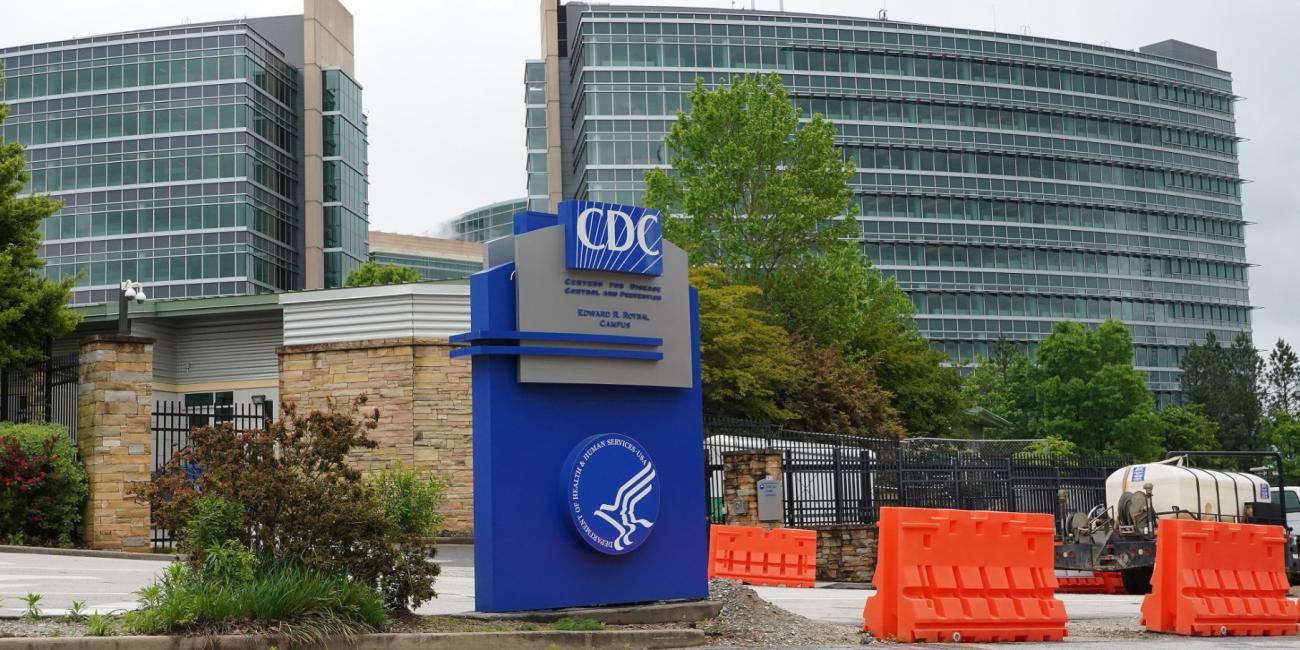
Indonesian police general falsely links vaccines to 'cell destruction'
- This article is more than two years old.
- Published on August 25, 2023 at 10:43
- Updated on August 28, 2023 at 05:55
- 4 min read
- By AFP Indonesia
A video of Dharma Pongrekun, an analyst at the Indonesian National Police Education and Training Institute, was posted on Instagram on July 19, 2023.
"Immunisation is causing the destruction of their cells, as a given cell or DNA is from God," the police officer says in Indonesian. "It causes them to have autism, meningitis, polio, autoimmune (sic), etc, causing a non-spiritualistic character."
"This is what the 3-star general said. Anyone dare to argue?" the Indonesian-language post says, referring to Dharma's ranking in the Indonesian police force.
The video has garnered more than 4.3 million views since.

Dharma was speaking in a podcast interview published on July 18, 2023, shortly after Indonesia passed a law making the central government and local authorities responsible for vaccinating children (archived links here and here).
The Instagram clip corresponds to the 12:43 timestamp of the full interview.
Dharma -- former deputy head of the Indonesian cybersecurity agency known as BSSN -- has promoted conspiracy theories about a global elite agenda and wrote a book called "Indonesia Under Life Manipulation" (archived link).
The video was shared by an account called "pureblood.forever" -- an apparent reference to the "pure blood" movement, which spins anti-vaccine narratives focusing on unfounded claims that receiving blood from people inoculated against Covid-19 "contaminates" the body.
The video also surfaced in similar posts on Instagram and YouTube, attracting more than 482.000 views in total.
'Won't destroy cells'
Professor Dr Hinky Hindra Irawan Satari, an expert on pediatric infection and chief of Indonesia's National Committee of Adverse Events Following Immunization, rejected the claim that vaccination led to the destruction of cells (archived link).
"Vaccines come from weakened germs. It won't destroy the cells. The thing that destroys the human's cell is the active germs," he told AFP.
The weakened germ from vaccination stimulated the body's immune system to create antibodies, which make our bodies immune to the targeted disease.
Professor Dr Amin Soebandrio, an expert on clinical microbiology at the University of Indonesia, said that vaccines go through three phases of testing to ensure safety and efficacy (archived link).
In rare cases, vaccines can interfere with the body's cells when antibodies mistake them for weakend germs -- causing adverse reactions, Amin added.
"There were around 20,000 mild adverse events reported following around 450 million vaccine doses injected in Indonesia," Hinky told AFP, referring to 2019-2022 data. He said that all of them were resolved either with treatment or on their own.
He added there were 451 reports of serious adverse events following vaccination, but "95 percent of them aren't related to the vaccination".
"Coincidentally, they had had other diseases [before the immunisation]."
The World Health Organization (WHO) says that serious reactions to vaccination are "extremely rare" (archived link).
Vaccines, autism
Indonesia's national immunisation programme, which targets newborns to 18-year-olds, includes vaccinations against more than a dozen infectious diseases, such as measles-rubella (MR) and polio vaccines (archived link).
In addition, Covid vaccines are available for those six years of age and older (archived link).
The 2015 study on more than 95,000 children in the United States found no harmful association between the measles-mumps-rubella (MMR) vaccine and autism spectrum disorder (archived link).
Only MMR vaccines that use Urabe, Leningrad-3 and Leningrad-Zagreb mumps vaccine strains have been associated with an increased risk of aseptic meningitis (archived link).
However, according to the WHO assessment: "all reported cases of vaccine-derived mumps meningitis have recovered" and the benefits of the MMR vaccines outweigh the risks.
Meanwhile, there were some reports of aseptic meningitis following Pfizer/BioNTech Covid-19 vaccinations in countries such as Japan, Singapore, South Korea and Germany in 2021 (archived link).
However, the reports said that causality was unclear and all patients fully recovered.
Polio
While vaccination has brought the wild poliovirus to the brink of eradication, another form of the disease called vaccine-derived polio can occur in communities with low immunisation rates (archived link).
Vaccine-derived polio typically spreads when the weakened vaccine-virus is excreted by a vaccinated person and then picked up by others through contaminated water or food.
While the spread of the weakened vaccine-virus can passively immunise other people, in rare cases, it can mutate over time and cause paralysis just like wild poliovirus.
"As the virus continues to find unvaccinated children, it undergoes small genetic changes. On very rare occasions, this can cause the weakened virus to change into a form that can cause paralysis," the Global Polio Eradication Initiative explains (archived link).
"If outbreaks do occur, they can be stopped in the same way as wild polio, with vaccination campaigns that protect children against all types of polio."
A study published in the Journal of Autoimmunity in 2022 discussed 928 reports of autoimmune and inflammatory diseases following Covid-19 vaccinations around the world (archived link).
It found there was a "likely an association between Covid-19 vaccination and autoimmune and inflammatory diseases" but stressed the need for further research into the matter.
"These rare events should not deter the use of this and other necessary vaccinations," it added.
August 28, 2023 Updated to delete three repeated lines about polio
Copyright © AFP 2017-2026. Any commercial use of this content requires a subscription. Click here to find out more.
Is there content that you would like AFP to fact-check? Get in touch.
Contact us




